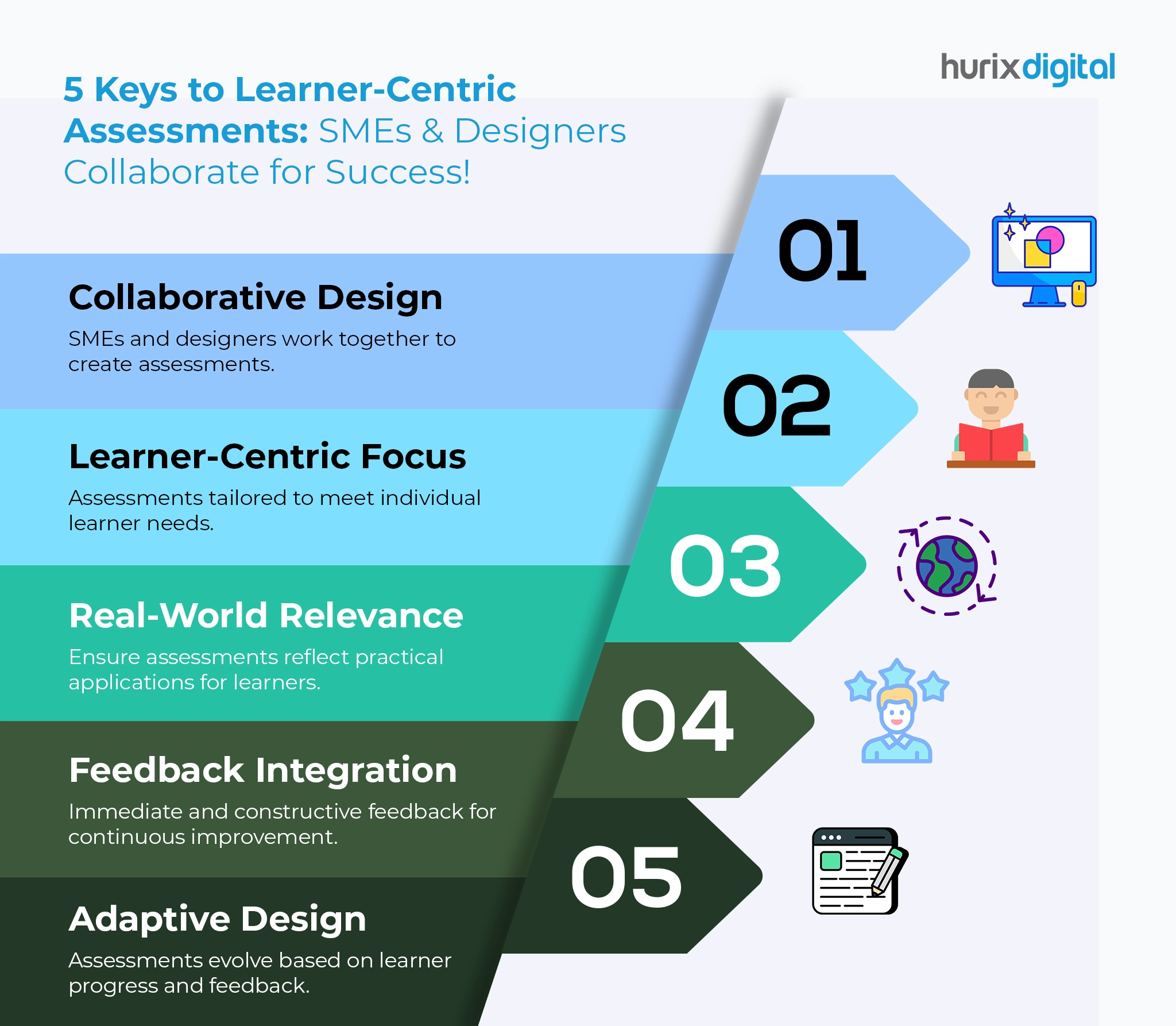Assessments are vital for evaluating learner and instructor progress, but traditional methods often miss the mark. Hurix Digital’s solution? Collaborative, learner centered assessment design. Our instructional designers work with experts to create engaging, insightful evaluations. The outcome is five keys to success: collaborative design, learner-centric focus, real-world relevance, feedback integration and adaptive design.
Transform your assessments into tools for learner achievement and organizational growth. Contact us to learn how our learner-centric approach can revolutionize your programs.

Learner-centered assessment is gaining traction in educational environments. This approach prioritizes individual learner needs, ensuring assessments not only evaluate knowledge but also enhance the learning experience. Collaboration between subject matter experts (SMEs) and instructional designers is essential for creating effective learner-centered assessments.
Understanding Learner-Centered Assessment
The Importance of Collaboration
Collaboration between SMEs and instructional designers is fundamental for creating assessments that truly reflect learner needs. By combining their expertise, they develop assessments that are both valid and engaging, fostering a deeper understanding of content and context, which leads to more effective evaluation methods.
Tailoring Assessments to Individual Needs
Learner-centered assessment personalizes the evaluation process. Recognizing that every learner has unique strengths and weaknesses, assessments are designed to address these differences, promoting an inclusive learning environment that encourages all students to succeed.
Key Elements of Personalization:
- Flexible formats: Offering multiple assessment formats allows learners to choose their preferred method, catering to diverse learning styles.
- Choice in topics: Selecting topics of interest enhances motivation and engagement, making learning more relevant.
- Goal setting: Encouraging learners to set personal goals increases accountability and investment in their learning journey, fostering a sense of ownership.
Real-World Applications
Effective assessments reflect real-world scenarios. Integrating practical applications helps learners see the relevance of their education, aiding retention and preparing them for future challenges in their careers.
Feedback Mechanisms
Immediate, constructive feedback is vital in learner-centered assessment. Timely insights help learners identify improvement areas and adjust study strategies, fostering a culture of continuous improvement.
Adaptive Design for Continuous Growth
Adaptive design is crucial for learner-centered assessments. By evolving based on learner feedback and progress, educators ensure the evaluation process remains relevant and effective.
Conclusion
Learner-centered assessment transforms educational outcomes. By prioritizing collaboration, personalization, real-world relevance, feedback, and adaptability, educators create an effective framework supporting every learner’s journey.




